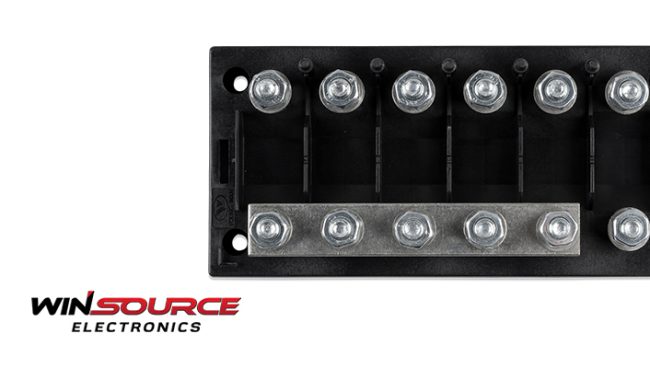
In the realm of electrical engineering, safety and reliability are paramount concerns. A simple yet vital component ensuring both aspects within electrical circuits is the humble fuse holder.
Often overlooked, these small devices play a crucial role in safeguarding equipment, preventing damage, and averting potentially hazardous situations.
As expert providers in supplying electronic components, we offer our insights as we delve into the significance, types, applications, and considerations surrounding fuse holders.
Let’s begin with a brief overview; then, we’ll get into more details.
Fuse holders are crucial in electrical systems, protecting circuits by housing fuses that interrupt excessive currents. Available in various types like cartridge, PCB, and panel mount, choosing based on current rating, mounting type, and durability is key for ensuring safety and reliability in diverse applications.
If you’re looking for a fuseholder supply, check our electronic component online product catalog. Alternatively, you can contact us here for more information or if you have another inquiry.
Understanding Fuse Holders
With the summary in mind, let’s get into more details, starting with a general understanding of fuse holders.
What are Fuse Holders?
A fuse holder is a receptacle that houses a fuse, securing it within an electrical circuit.
Fuse holders offer a secure point for the fuse to be installed and replaced when necessary. Essentially, it acts as a protective casing, enabling the fuse’s easy insertion and removal.
The Function of Fuses and Fuse Holders
Fuses are sacrificial elements designed to break the circuit and interrupt the flow of current when the current exceeds a specified limit, preventing damage to the circuit or connected devices due to overcurrent situations.
Fuse holders facilitate the installation and replacement of these fuses while ensuring safety by encapsulating them within a secure housing.
Types of Fuse Holders
Let’s look at the types of fuse holders that are in use and available in a wide range of industries, starting with cartridge fuse holders.
Cartridge Fuse Holders
Commonly used in high-current applications, cartridge fuse holders accommodate cylindrical fuses. They come in various sizes and materials to cater to different current ratings and environmental conditions.
PCB Mount Fuse Holders
These holders are designed for printed circuit board (PCB) applications, providing a secure mounting for fuses directly onto the board. They aid in space-saving and efficient assembly within electronic devices.
Panel Mount Fuse Holders
Installed on equipment panels, these holders provide easy access to fuses while offering protection and secure housing outside the device or circuitry.
In-Line Fuse Holders
In-line fuse holders are typically used for easily replaceable fuses in wiring applications and in automotive and industrial settings, offering convenience for maintenance and repairs.
Applications of Fuse Holders
Fuse holders have a wealth of applications in a wide range of industries. Here, we’re highlighting some of the more common applications of fuse holders.
Automotive Industry
Fuse holders are widely utilized in automobiles to protect various electrical systems from short circuits and overloads.
They ensure safety and prevent damage to critical components like lights, ignition systems, and other electrical accessories.
Industrial Machinery
In industrial settings, where heavy machinery is prevalent, fuse holders play a crucial role in protecting equipment from electrical faults, thereby preventing costly downtime and potential hazards to personnel.
Consumer Electronics
From household appliances to electronic gadgets, fuse holders are integrated into these devices to protect against electrical faults, ensuring user safety and preventing damage to the equipment.
Considerations in Choosing Fuse Holders
Now, let’s consider what you should consider when deciding on the right fuse holder. Again, if you need assistance, you can simply contact us here.
Current Rating
Selecting a fuse holder with an appropriate current rating matching the system’s requirements is crucial. Oversized or undersized holders can lead to inefficiencies or safety hazards.
Mounting Type
Consider the application’s requirements regarding mounting – whether it’s PCB mounting, panel mounting, or in-line mounting, to ensure proper installation and accessibility.
Environmental Conditions
In harsh environments subject to moisture, dust, or extreme temperatures, choosing fuse holders with appropriate ingress protection (IP) ratings is essential to maintain functionality and safety.
Materials and Durability
Fuse holders made of quality materials ensure longevity and reliability, especially in applications prone to vibrations or frequent replacements.
Fuse Holders – Conclusion and Next Steps
Fuse holders, often overlooked yet pivotal components in electrical systems, safeguard equipment, prevent hazards, and ensure the smooth functioning of various applications.
Their diverse types and applications, coupled with critical considerations in selection, underscore their significance in maintaining safety and reliability within electrical circuits.
As technology advances and safety standards evolve, fuse holders continue to be indispensable in protecting electrical systems across various industries and applications.
Contact us for more information and to select the right fuse holders for your needs. You can also check our online store.
© 2024 Win Source Electronics. All rights reserved. This content is protected by copyright and may not be reproduced, distributed, transmitted, cached or otherwise used, except with the prior written permission of Win Source Electronics.

COMMENTS